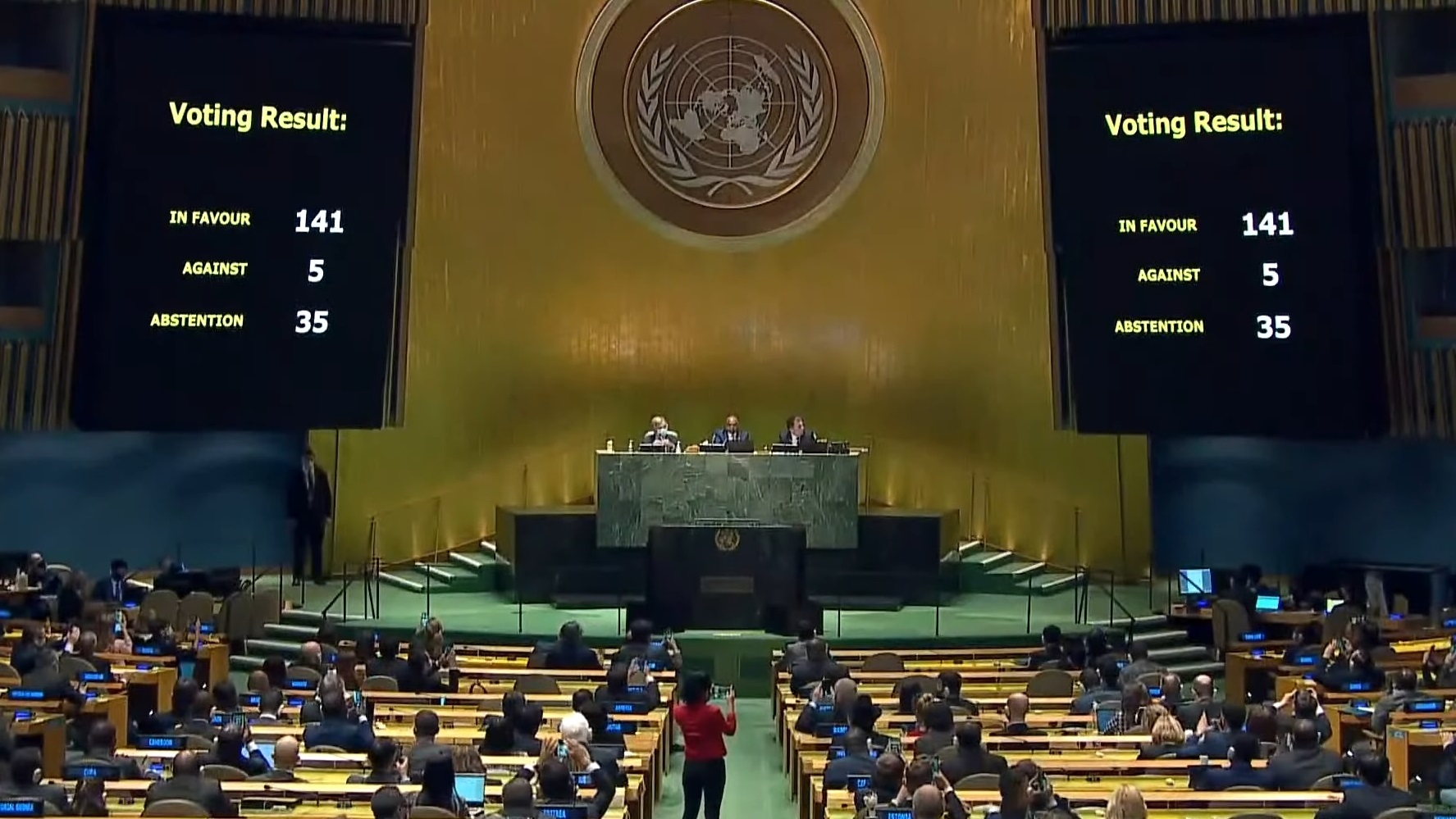Shortly after the vote of the UN General Assembly on a resolution condemning the military intervention of the Russian Federation in Ukraine, the government of Lithuania decided on March 3 to scrap its decision to donate 444,600 doses of Covid-19 vaccines to Bangladesh. The decision was taken, as the government quite openly put it, to punish Bangladesh for its abstention vote on the resolution along with other 35 UN member states.
The action against Bangladesh was not part of the unilateral coercive measures – sanctions – against Russia since the beginning of the war. Yet it is a clear illustration of how the Global North will not shy away from using health as a way to pressure countries in the Global South to back their line of action on this.
Covid-19-related medical products are only the latest addition to the toolkit of health resources that rich countries have used to blackmail the rest of the world for decades, and they can prove very effective in this regard. In the absence of a functional mechanism of ensuring global equitable access to vaccines, diagnostics, and therapeutics, pharmaceutical companies and governments in the West are the ones deciding who gets what.
In case other governments decide to follow Lithuania’s example and cut off countries who oppose or abstain from the measures proposed by the West – as almost half of the UN member states from Africa did during the vote at the UN – the efforts to combat the pandemic could be slowed down even more. This is particularly worrying as new variants are still being discovered, putting those without access to drugs and vaccines at particular risk.
Right to health canceled under sanctions
The Global North has never hesitated to put the health and lives of people from poor countries at risk through the introduction of sanctions, instead perceiving this as a legitimate way to intervene in and seek to change these countries’ internal policies. Those imposing the sanctions claim that the aim is to punish the ruling sections of the targeted countries and thus potentially induce regime change. However, the worst-hit are the general population.
In Venezuela, 40,000 people died between 2017 and 2018 because of the effects of US unilateral coercive measures. In addition to that, Venezuela faces great difficulty in procuring and importing vaccines, including yellow fever and polio vaccines. This even resulted in fears of polio returning in 2018, almost 30 years after the last case was recorded in Venezuela. Health authorities later confirmed the possibility no longer existed. But it remained a matter of great concern as millions of children were not able to get vaccinated.
Following the introduction of sanctions against Iran, the country’s public health system struggled to ensure basic care, including import of essential medicines and other products. The sanctions have caused issues in the treatment of patients living with cancer and diabetes, leading many to rely on black market supply instead. This has caused additional financial pressure on households and put livelihoods at risk.
Reports by Alena Douhan, UN Special Rapporteur on the negative impact of unilateral coercive measures, show that Iran also faces the consequences of Global North companies’ over-zealousness in respecting the sanctions. A recent example was the Swedish company Mölnlycke Health Care, which ceased to supply Iran with bandages used by patients with epidermolysis bullosa, a group of diseases causing the skin to develop painful blisters and become fragile. According to the Iranian Center for International Criminal Law, Mölnlycke’s action caused the death of at least 30 children, as well as a 70% increase in pain among those living with the condition.
New complications brought by the pandemic
Covid-19 brought a new set of complications for those living under sanctions, as countries were able to purchase neither vaccines, nor equipment needed for administering them. In an interview with the Organization for Defending Victims of Violence, Douhan warned that countries faced with unilateral coercive measures reported issues in even participating in the COVAX program, the mechanism that was supposed to ensure access to vaccines to those most in need, especially in the Global South. The issues were a result of banks’ reluctance to deal with their payments out of fear of retribution by those who introduced the sanctions. Even Cuba, which developed its own vaccines and shared them with other countries under sanctions, faced a shortage of syringes needed for their administration, as the US blockade impeded their import.
Russia itself may not be immediately affected in this manner given the country’s size and role in the global economy, as well as the reluctance of many countries outside the West to back the measures. However, historically, even sanctions focused on trade have had a trickle-down effect on health care and nutrition. Meanwhile, the US and its allies continue to bully countries across the world to toe their line on Russia. If the Western powers continue on the path to severing all ties and make similar demands of other countries, the consequences could ripple across the world.
Scientific research and cooperation are among the aspects at risk, something that is sure to be detrimental in the case of new global health emergencies. South-South cooperation, as exemplified by Cuba and Vietnam during the pandemic, brings hope that such issues can be mitigated. But until such alternatives take shape, the effects of punitive actions by the West could be disastrous for the entire world.
Read more articles from the latest edition of the People’s Health Dispatch and subscribe to the newsletter here.





